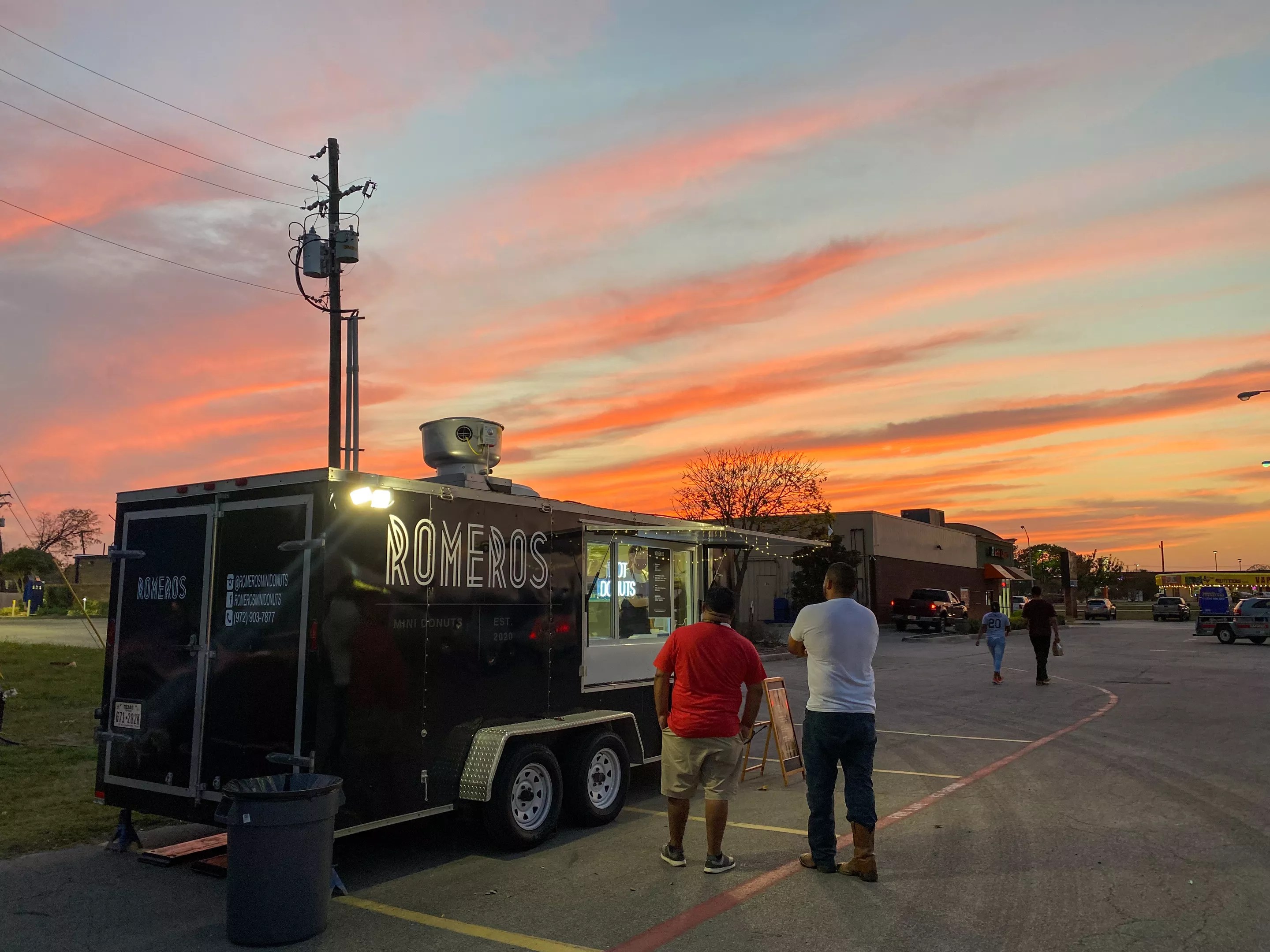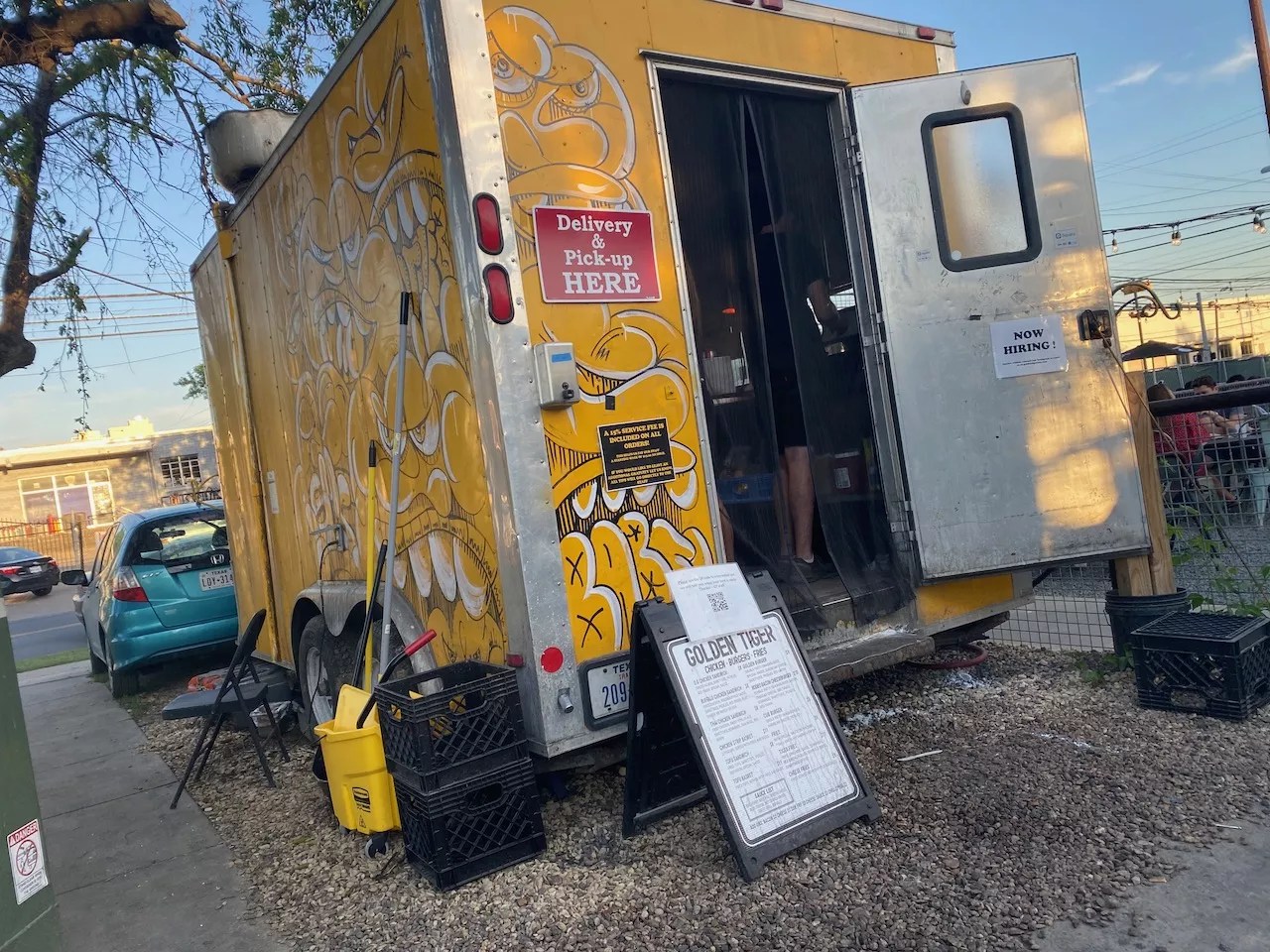
Taylor Adams

Audio By Carbonatix
The growth of food truck businesses in Dallas has long been stymied by regulation. High fees and the mere definition of who qualifies as a mobile food vendor created a high barrier to entry that hindered entrepreneurs.
After years of flirting with ideas, on Wednesday the Dallas City Council unanimously approved significant changes to mobile food vendor codes.
The new ordinance will cut fees for mobile food vendors, allow for food trailers (not just food trucks), expand food preparation options and will no longer require daily commissary visits.
These specific changes were the result of a yearlong study and the MLK Food Park, a four-weekend pop-up incubator last summer spearheaded by the nonprofit Better Block, which studies ways to foster growth in communities. After the event, the Better Block Mobile Food Vending Task Force worked closely with the city to compare notes. They also looked at what other cities, like Austin, were doing.
Jason Boso, was on the Better Block task force. A longtime local restauranteur and founder of The Truckyard, a food truck park on Lower Greenville, Boso says Dallas just got better with this decision.
“In the years to come we will have better quality food and more diverse options of restaurants when these future entrepreneurs rise to the top and start growing into their own brick and mortar establishments,” Boso said in an email.

Austin’s Golden Tiger is a small food truck pushing out amazing chicken sandwiches. Now Dallas will allow operations like this.
Lauren Drewes Daniels
The barrier to entry in the former code primarily hinged on the fact that fifth-wheel trailers were not allowed to operate in Dallas unless it was a special event, in which a $250 daily permit was required. Trailers, which are pulled by another vehicle, are much more affordable than food trucks. A prime example is 225 BBQ, which operates in Arlington. René Ramirez started his business with a $50,000 trailer outfitted with a commercial-grade kitchen. When he found out trailers weren’t allowed in Dallas, he priced a food truck: $140,000. So, he worked around Dallas, but never in it.
Another issue amended was a requirement that mobile food vendors had to check into a commissary, a large commercial kitchen, daily. This made attending weekend-long events difficult. Now they only have to go once a week.
Other changes include eliminating a code that prohibited the preparation of raw poultry or seafood on a truck.
Now we only need spaces for these now-free mobile food units to work. Currently, the only options are private spaces, where a percentage of profits are often handed over to the property owners. City staff is exploring a pilot program that creates “Food Truck Zones” at city parks and green spaces. So far, two spaces are scheduled to be tested this summer: Pacific Plaza downtown and Kiest Park in central Oak Cliff.
The Dallas City Council has said in a year’s time they will review the effects of the ordinance changes.